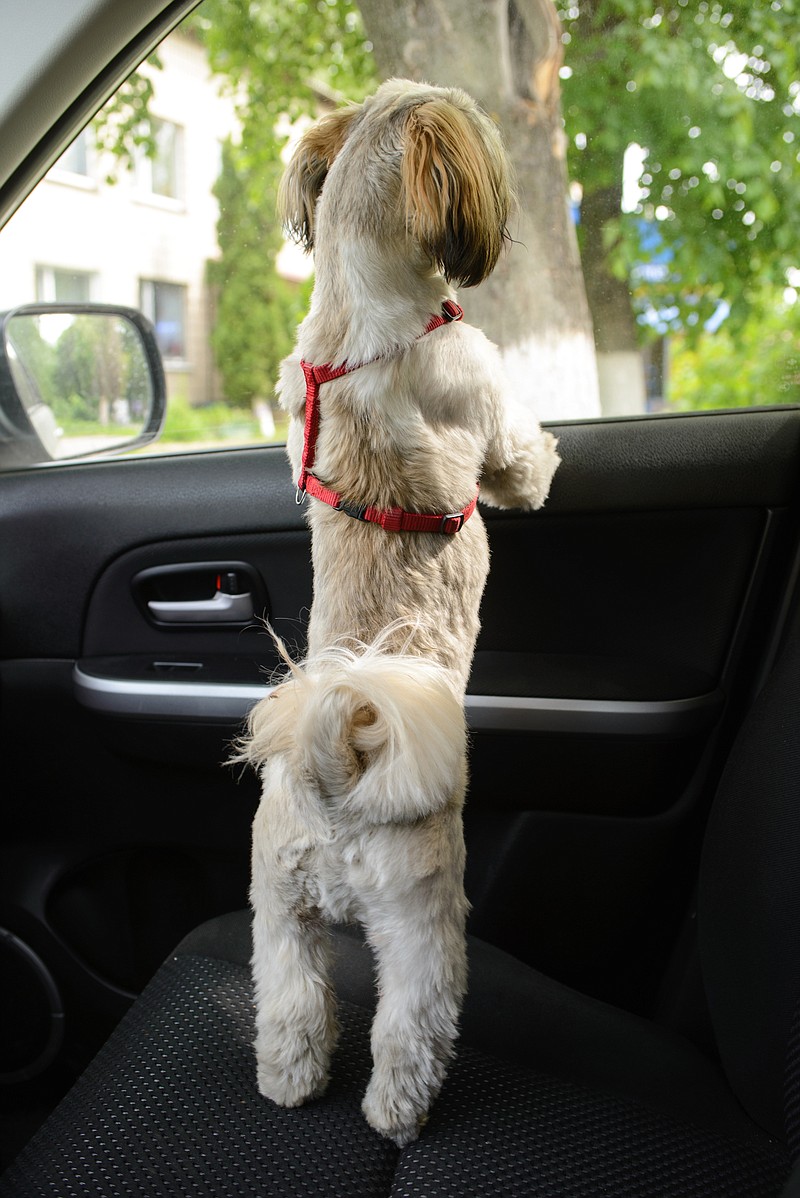"It's so hot out," is a phrase groaned by many a Southerner during the summer, yet many fail to consider that pets are not immune to the oppressive heat outdoors.
While good Samaritan laws have previously been put into effect to protect those who attempt to rescue children from a dangerously hot vehicle, the same protection has not been extended to those concerned for animals until now.
Beginning this month, anyone who breaks into a car to rescue an animal who appears to be in distress can be immune from prosecution, according to a bill passed by the Tennessee General Assembly. Originally intended to protect those pulling children from a hot vehicle, the bill has been amended to include those assisting animals in need as well, explains Humane Society of the United States district leader Maryann Davis.
Davis, who works with area residents to educate them on the importance of overall animal care, says the bill has been a long time coming - and is a welcome success for the Humane Society, as August brings some of the hottest weather of each year.
"I'm hoping that with this new law, people will feel much more compelled to take action and don't feel helpless because they may be arrested," she says. "Obviously we don't want people running around breaking windows, but in the summer all it takes is a few minutes. Less than 15 minutes later - even with windows cracked - it can cause serious consequences."
But before breaking a window, there are a few things a concerned citizen needs to do to protect themselves from legal repercussions, Davis cautions.
"First of all, look around. You have to make some sort of effort to find the owner," she says. "Then, call 911 and stay on the line with them. If the dog looks to be in dire straits - if they are panting, pacing, lethargic, etc. - keep talking to 911. If the dog needs immediate attention, you can then break the window."
As added protection against an angry car owner and pet parent, Davis recommends also taking a screenshot of the weather at the time on your phone.
Humane Society of Chattanooga volunteer manager Jeanine Cloyd says it is important that pet parents be educated about the dangers of overheating.
"People need to understand that car temperatures rise drastically, and quickly, even if it's just 70 degrees out," Cloyd says. "If it's 70 and the sun is out, your car can be 90 degrees in less than 10 minutes. And in this 90- to 100-degree weather, it's much worse."
Chattanooga native Hunter Sims says he is glad the bill gives animal advocates an ability to resolve an otherwise potentially deadly situation for a dog.
Unfortunately it was not yet in effect when Sims was confronted with a situation outside a local restaurant earlier this summer, in which he spotted a dog locked in a car in the heat. The temperature was higher than 80 degrees and the dog was obviously suffering, he says.
"I've never felt so helpless as I did when I saw that poor dog panting frantically in an obvious state of distress," Sims says. "I can only imagine how scared he was. Hopefully, this new law will help [fewer] good Samaritans be deterred from doing what's right in these situations."
Sims says he was able to eventually find the car owner seated in the restaurant's air conditioned bar area.
"Hopefully [this bill] will make some of these people think a little bit harder about the repercussions of what they are doing," he says. "Obviously, they don't care about the well-being of their animals, but I bet they will care if their window is busted out."
Cloyd says that ideally, pet parents will become more educated and avoid putting animals in situations in which they are in need of rescue, but in the meantime, the bill is a welcome tool that could save lives.
"It's a quandary for us, that people don't realize that dogs can't handle [being trapped in extreme heat]," she says.
"It takes a village," Davis agrees.
Email Gabrielle Chevalier at gchevalier@timesfreepress.com
